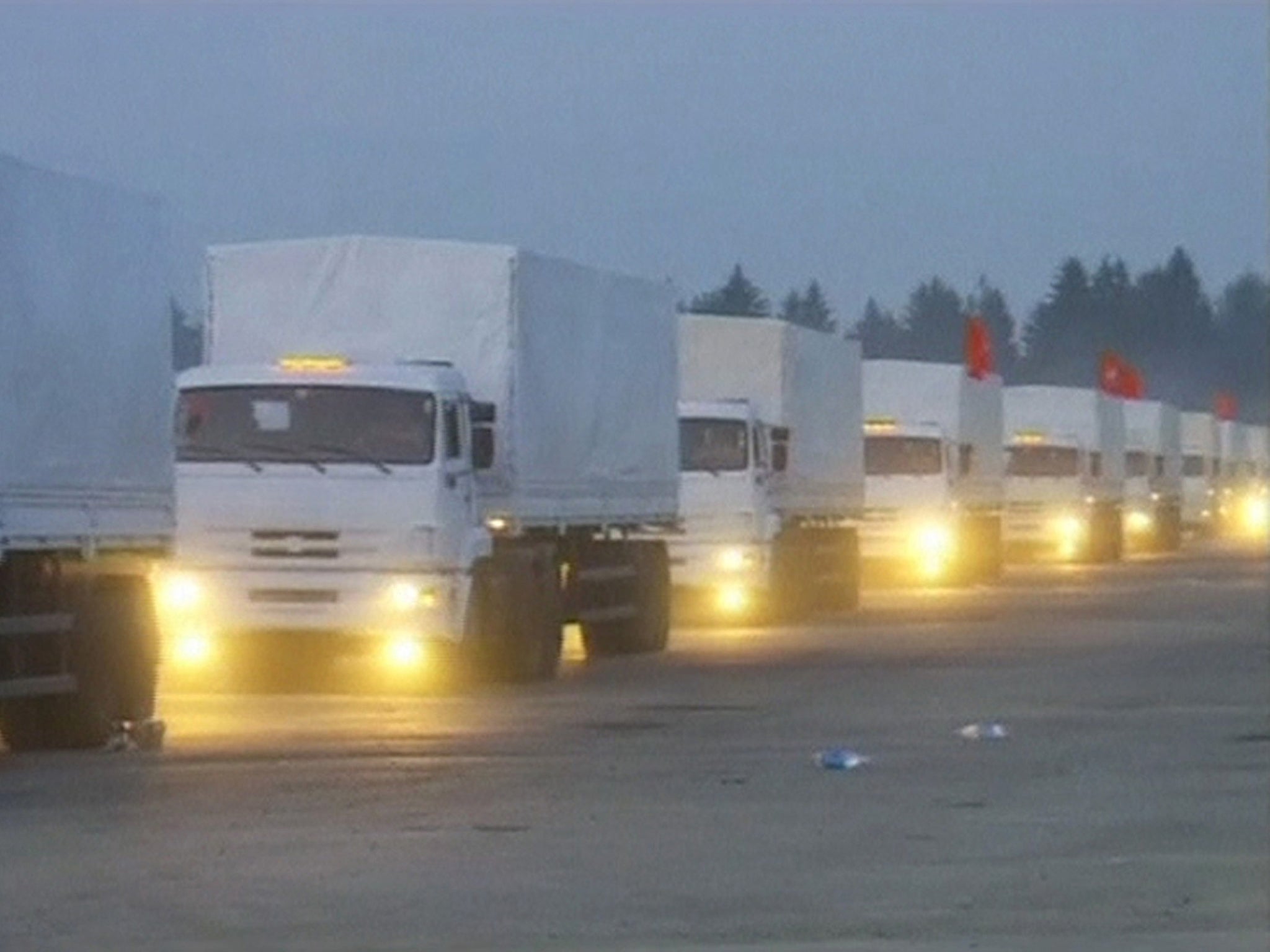Ukraine crisis: death toll doubles to 2,080 within just two weeks as army warns it will block 'Putin humanitarian aid convoy'
A convoy of almost 300 trucks departed for Ukraine on Tuesday

Your support helps us to tell the story
From reproductive rights to climate change to Big Tech, The Independent is on the ground when the story is developing. Whether it's investigating the financials of Elon Musk's pro-Trump PAC or producing our latest documentary, 'The A Word', which shines a light on the American women fighting for reproductive rights, we know how important it is to parse out the facts from the messaging.
At such a critical moment in US history, we need reporters on the ground. Your donation allows us to keep sending journalists to speak to both sides of the story.
The Independent is trusted by Americans across the entire political spectrum. And unlike many other quality news outlets, we choose not to lock Americans out of our reporting and analysis with paywalls. We believe quality journalism should be available to everyone, paid for by those who can afford it.
Your support makes all the difference.The UN's human rights office says the number of people who have been killed in eastern Ukraine appears to have doubled in the last two weeks, as the government warned a Russian humanitarian aid convoy will not be allowed to enter Kharkiv in the east of the country.
A spokeswoman for the office said "very conservative estimates" show the death toll has risen to at least 2,086 people from 1,129 on 26 July.
At least 4,953 others have been wounded in the fighting since mid-April. On average, she said, more than 60 people a day have been killed or wounded as part of "a clear escalating trend" of violence.
The figures come as the aid convoy stopped at a military base in Voronezh after being driven there from the outskirts of Moscow.
In a Facebook post earlier today, Ukraine's Interior Minister Arsen Avakov had warned "no Putin 'humanitarian convoy'" will be allowed across the territory of Kharkiv region and condemned the dispatch of convoys as a “provocation by a cynical aggressor”.
Prime Minister Arseny Yatseniuk also denounced the dispatch as as an act of Russian "cynicism".

He told a government meeting: "The level of Russian cynicism knows no bounds. First they send tanks, Grad missiles and bandits who fire on Ukrainians and then they send water and salt."
Andriy Lysenko, a spokesperson for Ukraine's National Security and Defence Council, said on Tuesday the Russian aid consignment from Moscow had not been certified by the Red Cross and as such would not be admitted.
The trucks departed from near Moscow on Tuesday morning, and were expected to reach the eastern Ukraine border within one or two days.
Thousands of people are believed to be desperately short of food, water and medical aid due to the fighting, which has seen more than 1,300 people killed.
The aid is most urgently needed in the largely rebel-held province of Luhansk. Its capital had a pre-war population of 420,000, and the 250,000 remaining have been without electricity or water supplies for eleven days.
On Monday, Russia announced the aid mission, which it said would be sent in co-operation with the International Red Cross.
However, Andre Loersch, a spokesperson for the International Committee of the Red Cross mission in Ukraine, said the organisation had “no information about the content” of the trucks and did not know where they were headed.
In the last week, Ukrainian government forces have been closing in on the few remaining pro-Russian rebel strongholds in eastern Ukraine, including Donetsk - the largest rebel-held city. Hundreds of thousands of residents have been fleeing the fighting.
Ukrainian President Petro Poroshenko said he would only support an aid mission with Russia if other international bodies, including the Red Cross and the European Union, were involved.
Mr Poroshenko added that he had spoke to US President Barack Obama, who backed the international plan. The cautious support came after the West strongly warned Russia any attempt to send its military personnel into Ukraine under the guise of humanitarian assistance would be regarded as an invasion.
The Russian Foreign Ministry today dismissed claims the trucks could be a cover for an invasion as "absurd".
Additional reporting by agencies
Join our commenting forum
Join thought-provoking conversations, follow other Independent readers and see their replies
0Comments